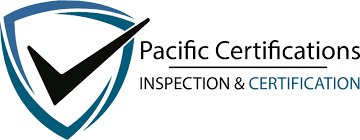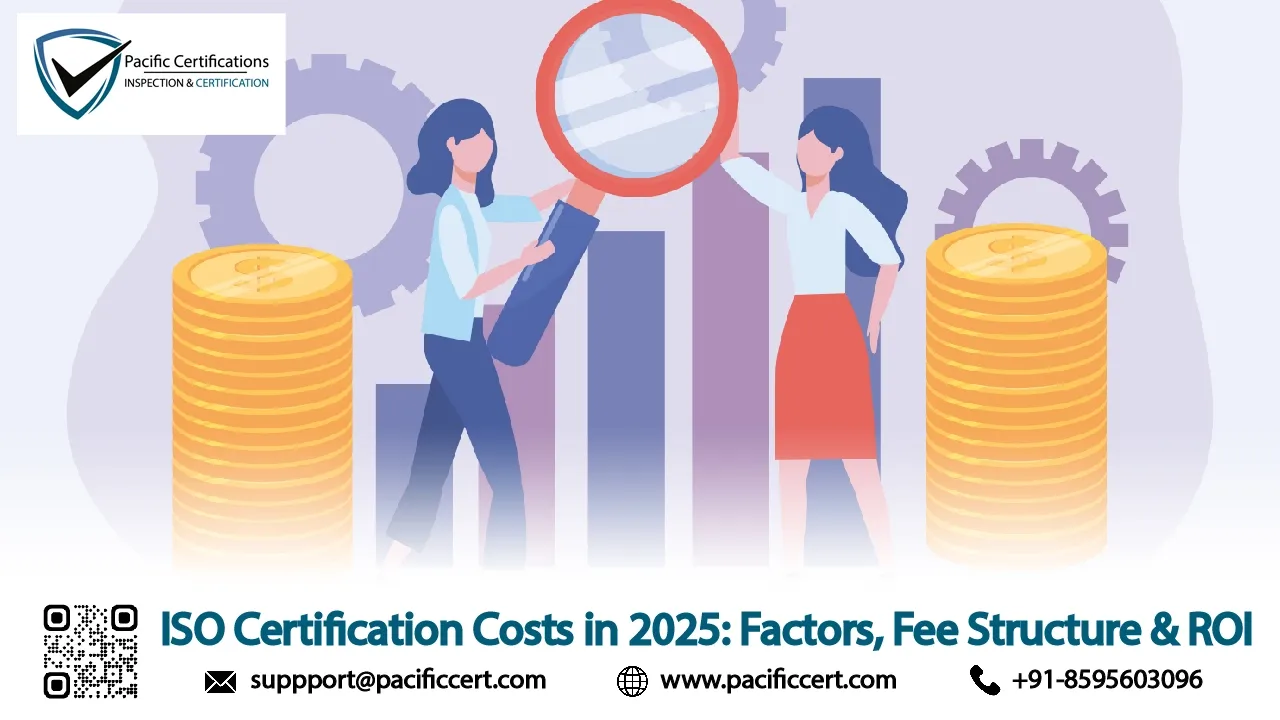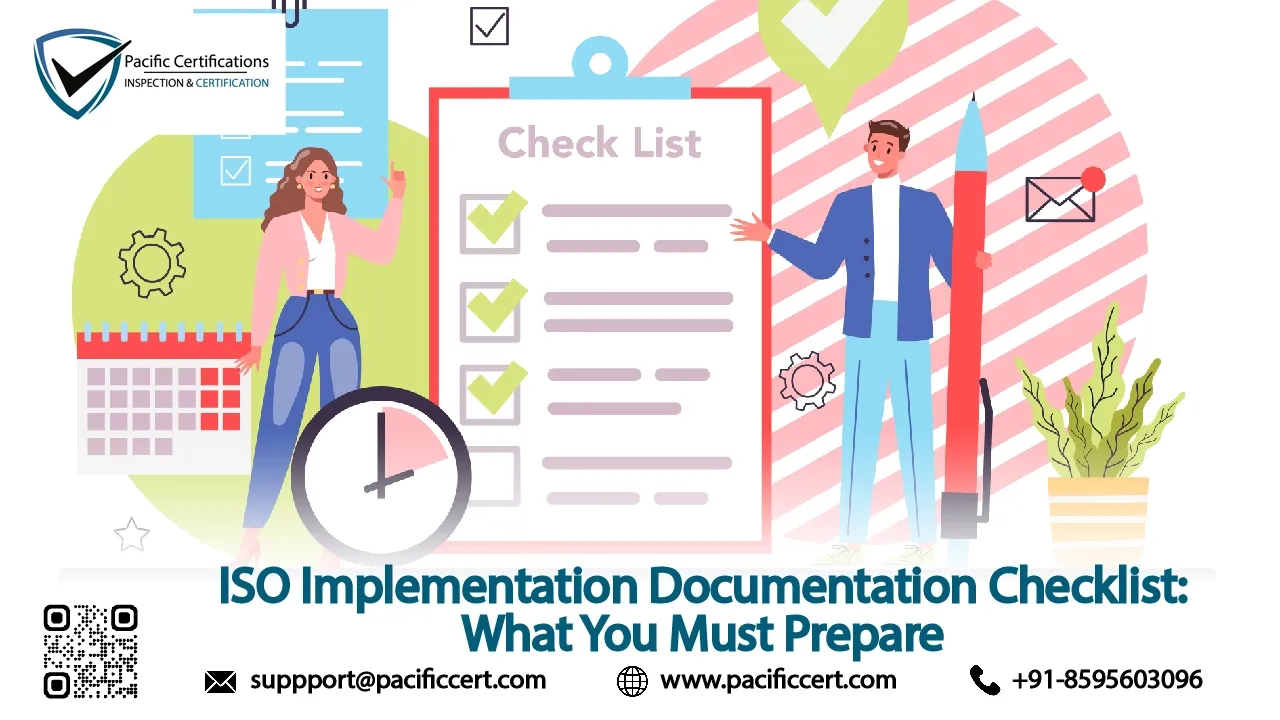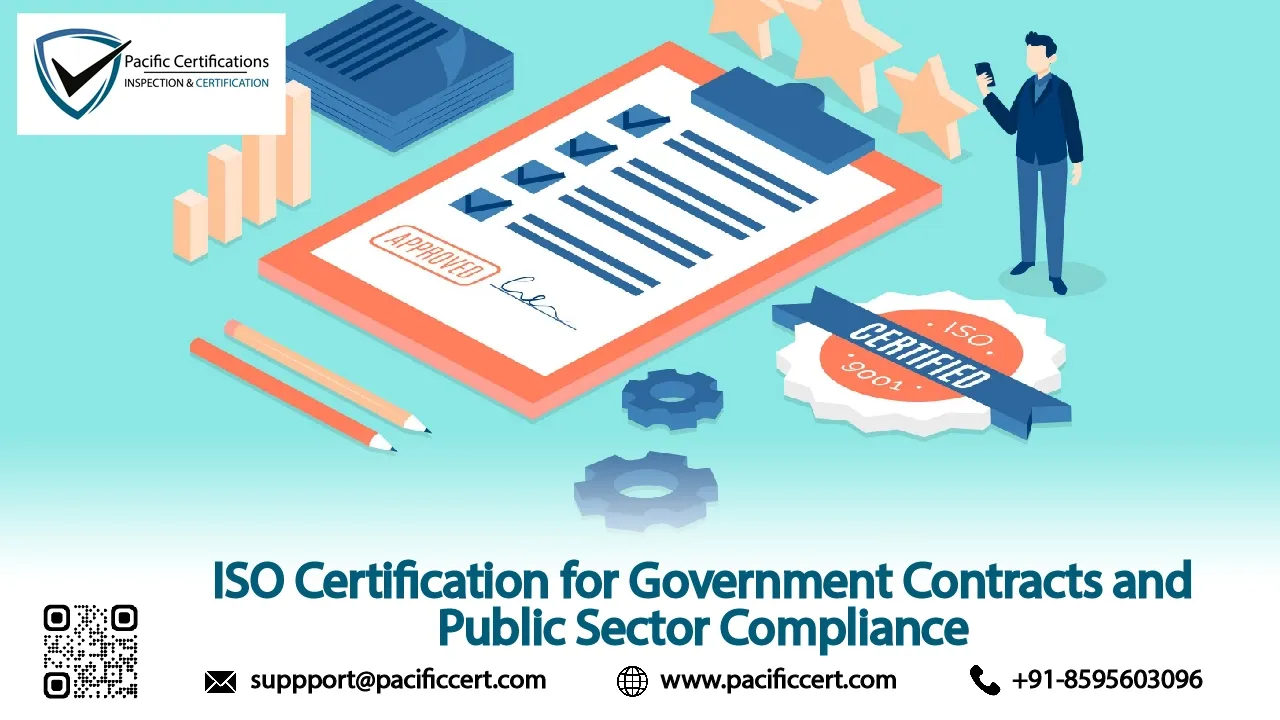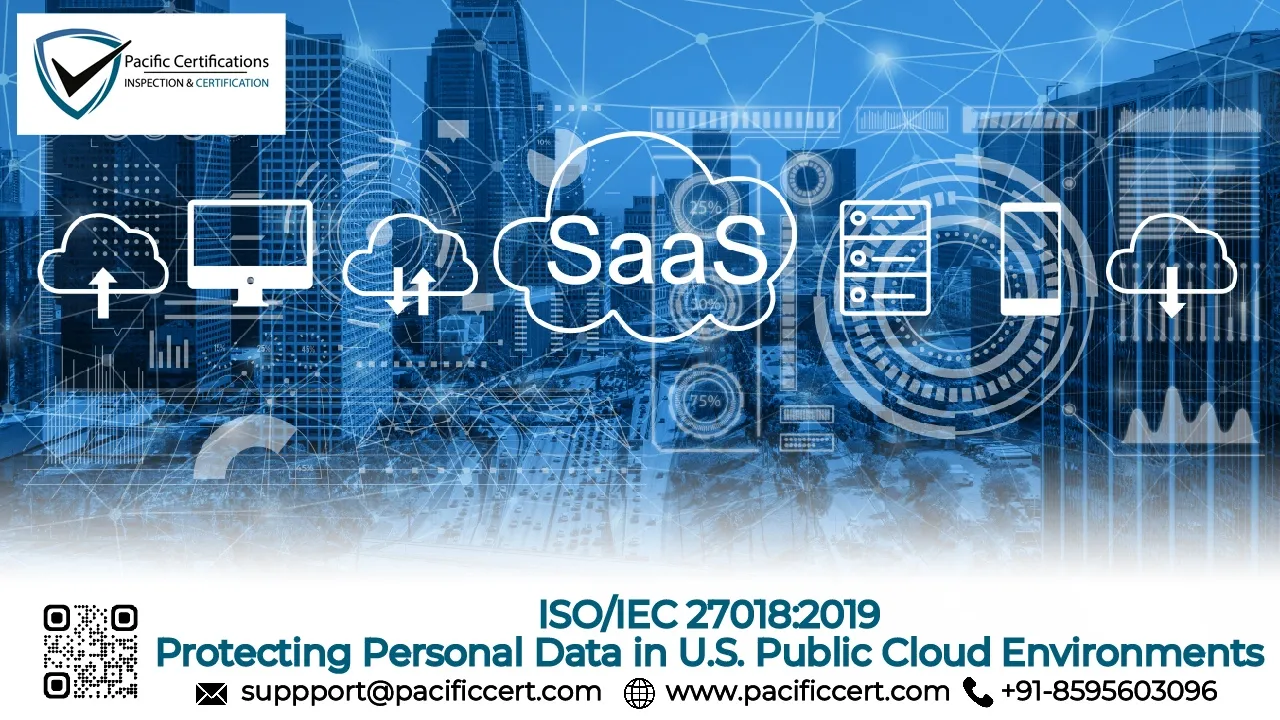
As the U.S. cloud services market continues to grow at an unprecedented pace, driven by widespread adoption of SaaS, IaaS, and PaaS platforms across industries, data privacy and security have emerged as central concerns for both consumers and regulators. The U.S. is projected to spend over $675 billion on cloud services by 2027, and yet, concerns about how personally identifiable information (PII) is handled in public cloud environments continue to dominate compliance strategies across finance, healthcare, e-commerce, and tech.
To address these concerns, ISO/IEC 27018, the internationally recognized code of practice for the protection of PII in public clouds acting as PII processors, has become a critical privacy framework. It provides cloud service providers with actionable guidance on how to implement appropriate controls when processing PII on behalf of data controllers, ensuring that customer data is protected according to best practices and in alignment with global privacy laws.
If you are looking for ISO/IEC 27018 certification support, please contact us at support@pacificcert.com!
What Is ISO/IEC 27018:2019?
ISO/IEC 27018:2019 is an extension of the ISO/IEC 27001 family of standards, specifically developed to address privacy risks in public cloud computing. It serves as a supplementary privacy framework tailored for PII processors, which are entities that process personal data on behalf of PII controllers, typically in a cloud service context.
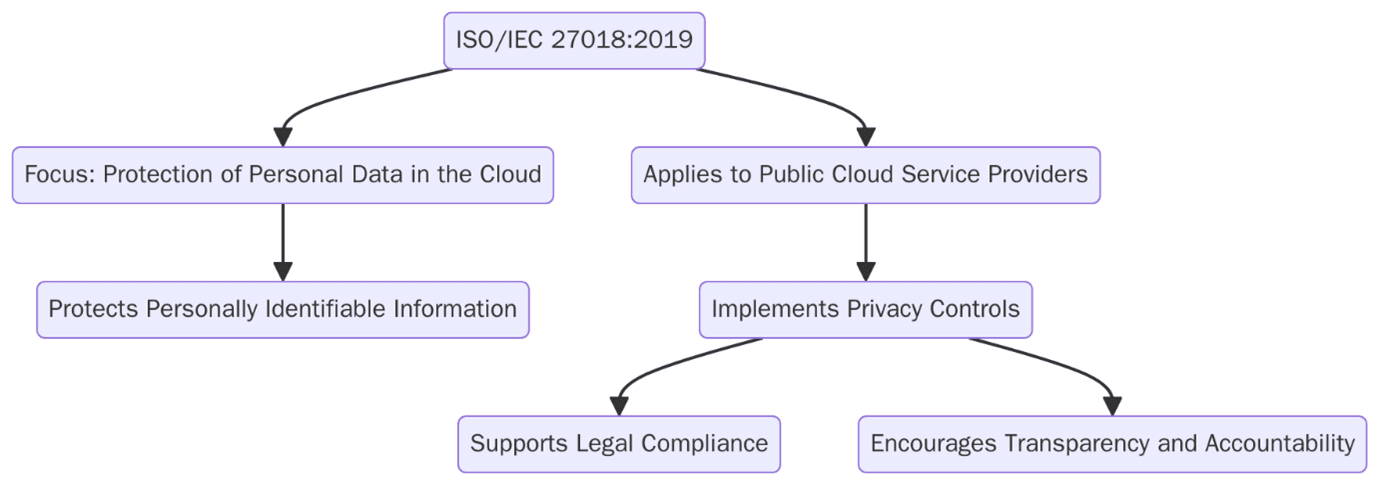
This standard outlines how to:
- Implement transparency regarding PII processing
- Ensure consent and purpose limitation
- Provide mechanisms for access, correction, and erasure
- Maintain robust data security and breach notification controls
- Prevent unauthorized access and cross-border data mishandling
The framework aligns with several globally enforced data protection laws, including GDPR (EU), CCPA and CPRA (California), HIPAA (U.S. healthcare), and other evolving state-level privacy acts in Virginia, Colorado, and Utah.
Unlike general information security standards, ISO/IEC 27018 focuses exclusively on protecting PII in cloud environments, addressing the unique risks posed by multi-tenant architectures, third-party data centers, and automated provisioning tools.
Why ISO/IEC 27018 Matters in the U.S. Cloud and SaaS Ecosystem
The U.S. is home to some of the world’s largest cloud service providers, including AWS, Microsoft Azure, Google Cloud, and Salesforce—as well as tens of thousands of SaaS vendors that handle massive volumes of PII across customer segments. In this context, ISO/IEC 27018 offers a uniform, vendor-neutral privacy governance model that can be adopted across platforms, regardless of architecture or scale.
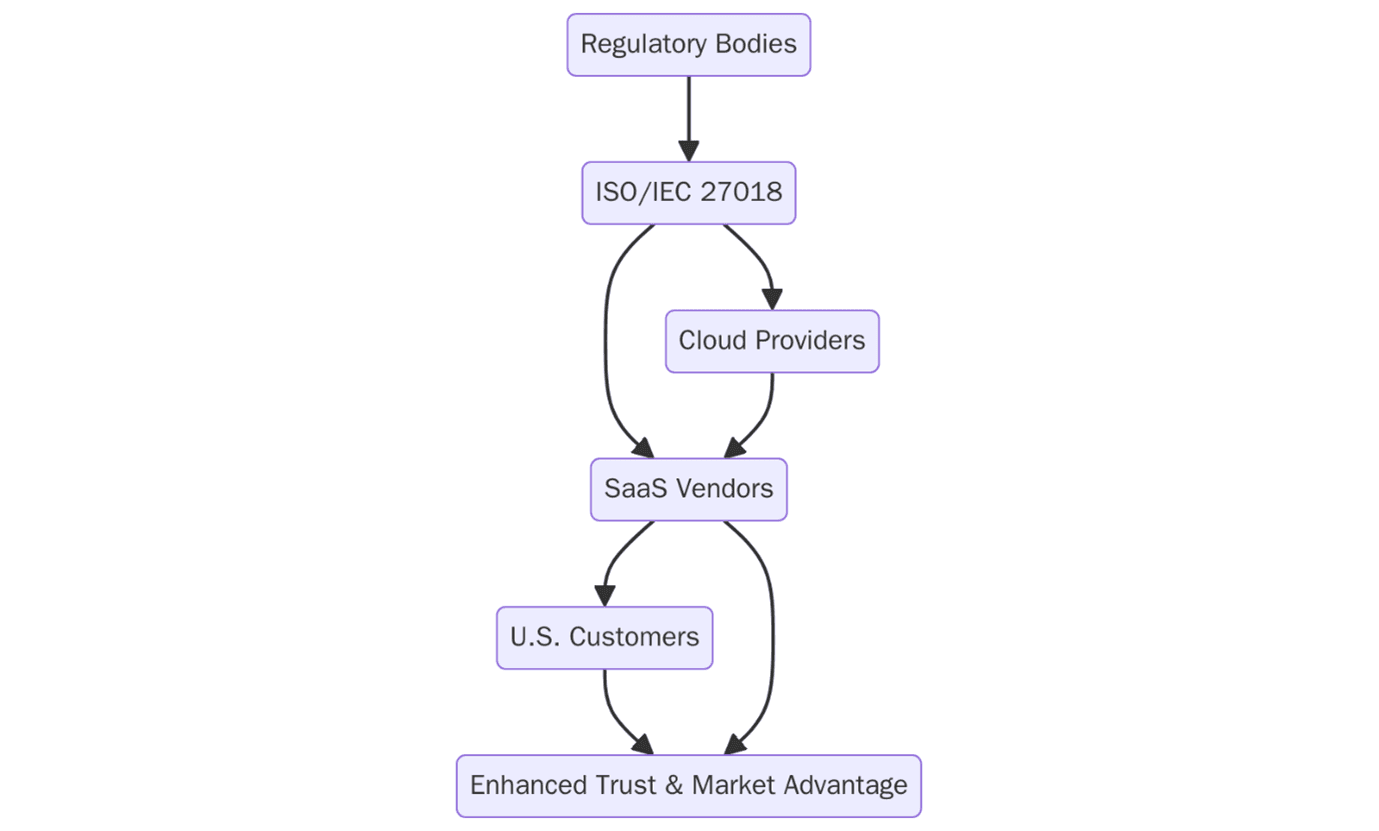
Cloud providers acting as PII processors face increasing pressure to demonstrate:
- How they manage access to client data
- What contractual and technical safeguards are in place
- Whether customer PII is protected across jurisdictions
- How transparency and accountability are upheld during processing
Given the fragmented nature of U.S. privacy laws and the absence of a federal privacy mandate, ISO/IEC 27018 has emerged as a voluntary but powerful mechanism to build trust, reduce legal risk, and satisfy client procurement requirements.
SaaS vendors, healthcare cloud providers, EdTech platforms, and FinTech firms are increasingly leveraging ISO/IEC 27018 certification or compliance alignment to show that their data privacy practices are internationally benchmarked.
Industry Trends: The Surge in ISO/IEC 27018 Adoption in the U.S.
In 2024, industry research shows a marked increase in the demand for ISO/IEC 27018 among U.S.-based public cloud providers. According to IDC and Forrester, over 60% of U.S. enterprise customers now require some form of privacy assurance certification in vendor selection, especially in contracts involving PII processing.
Furthermore, the introduction of state-level data privacy regulations, such as:
- California’s CPRA, which expanded consumer rights over data sharing
- Colorado Privacy Act (CPA) and Virginia Consumer Data Protection Act (VCDPA)
- Texas Data Privacy and Security Act (TDPSA)
They pushed U.S. companies to seek compliance frameworks that are recognized across state lines and by international regulators. ISO/IEC 27018 fills this gap by providing a harmonized approach to cloud privacy that supports multi-jurisdictional data operations.
Cloud service providers (CSPs) that have adopted ISO/IEC 27018 often report:
- Increased customer acquisition due to higher trust
- Improved win rates in government and enterprise RFPs
- Reduced legal risk and audit complexity
- Enhanced internal understanding of privacy obligations
Core Implementation Requirements of ISO/IEC 27018
To comply with ISO/IEC 27018, cloud service providers must integrate privacy-specific practices into their information security programs. While it extends ISO/IEC 27001, the standard introduces new requirements and operational expectations tailored to PII protection.
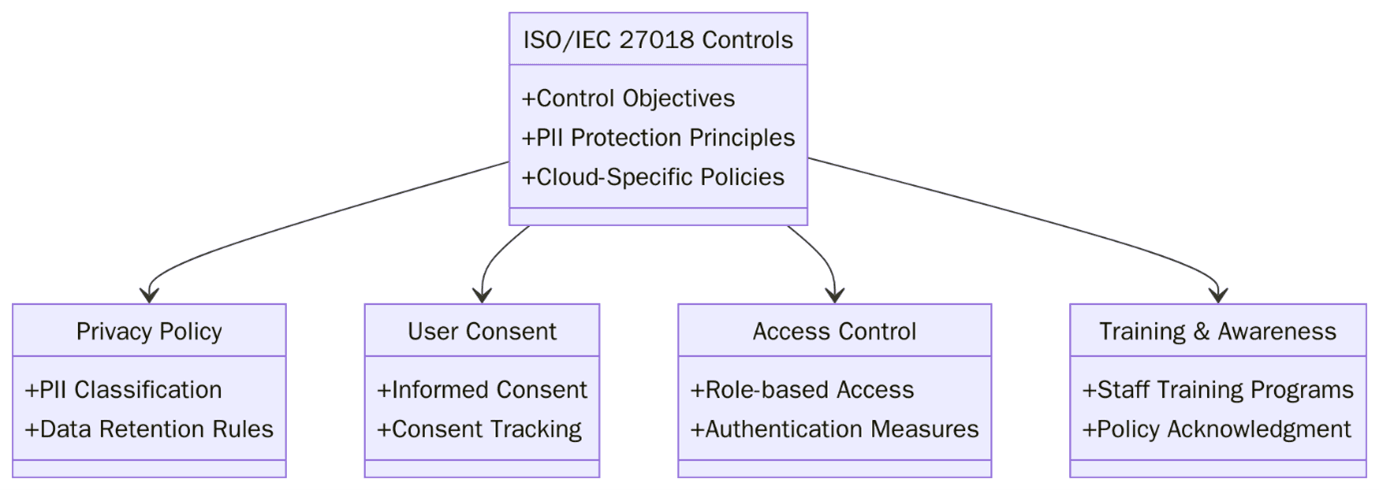
Key requirements include:
- Transparency: Cloud providers must disclose clear information on data processing, subcontractors, storage locations, and access mechanisms.
- Purpose Limitation: PII must only be processed for explicitly defined and agreed-upon purposes.
- Consent Management: Cloud services must respect client rights over data usage, including consent withdrawal.
- Data Subject Rights: Providers must implement processes to enable controllers to fulfill requests for access, correction, and erasure.
- Accountability and Logging: Logs related to data access and system interactions must be maintained securely for auditability.
- Contractual Safeguards: Providers must ensure that service level agreements (SLAs) and data processing agreements (DPAs) reflect ISO/IEC 27018 principles.
Certification Timeline for ISO/IEC 27018 in the U.S.
The time required to align with ISO/IEC 27018 depends on the maturity of the existing ISMS and the complexity of PII processing. Organizations already certified to ISO/IEC 27001 typically require 2 to 4 months for ISO/IEC 27018 alignment. Those starting from scratch may take 4 to 6 months, depending on scale.
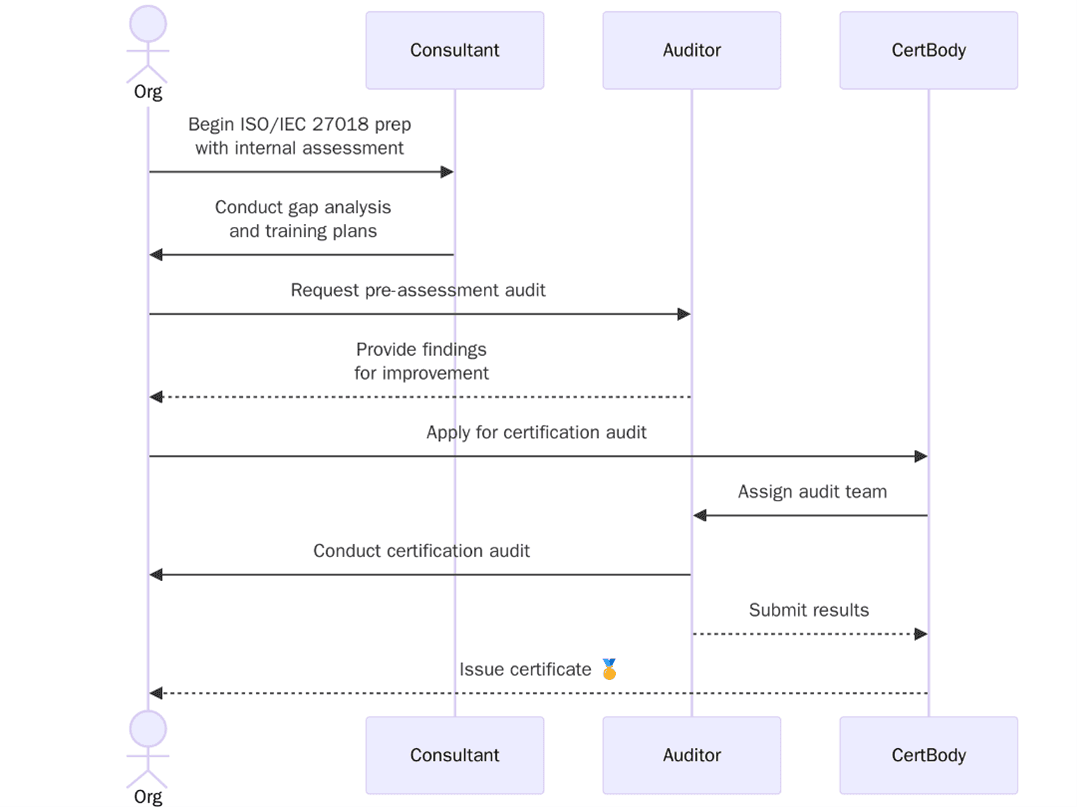
The certification process typically involves:
- Gap analysis and readiness assessment
- Documentation development including PII inventories, SLAs, access controls, and breach procedures
- Employee training and system integration
- Internal audit and risk review
- Certification audit (conducted with the ISO/IEC 27001 surveillance or recertification audit)
How Pacific Certifications Can Support With ISO/IEC 27018
As an accredited certification body, Pacific Certifications provides expert guidance and independent audit services for ISO/IEC 27018, especially for organizations in the public cloud and SaaS domains operating across the United States.
Our ISO/IEC 27018 services include:
- Privacy readiness assessments and gap analysis
- Integration of ISO/IEC 27018 with ISO/IEC 27001 ISMS frameworks
- Review and alignment of data protection agreements and SLAs
- Training and awareness programs for privacy and security teams
- Certification audits and post-certification surveillance services
We serve businesses across California, Texas, New York, Florida, Washington, Illinois, and beyond, helping organizations build trustworthy, privacy-resilient cloud platforms. Whether you're a startup preparing for enterprise onboarding or a cloud infrastructure provider targeting global expansion, Pacific Certifications ensures that your privacy controls are auditable, transparent, and aligned with international best practices.
Contact us at support@pacificcert.com to get started!
ISO/IEC 27018 – A Strategic Investment in U.S. Cloud Privacy
As the U.S. market becomes increasingly privacy-conscious and cloud-reliant, ISO/IEC 27018 is no longer just a technical recommendation, it’s a strategic differentiator. It allows public cloud service providers to demonstrate a robust, independently verified commitment to personal data protection, aligning with both global standards and U.S.-specific privacy mandates.
For cloud platforms processing sensitive data in sectors such as finance, healthcare, e-commerce, or government, implementing ISO/IEC 27018 is not only a best practice, it’s becoming a competitive requirement.
Pacific Certifications is here to support your cloud privacy compliance journey with structured, transparent, and business-aligned certification services.
To begin your ISO/IEC 27018 certification process or request a gap assessment, contact us at support@pacificcert.com or visit www.pacificcert.com.
FAQs – ISO/IEC 27018:2019
What is ISO 27018?
A privacy‐focused extension to ISO 27001 that prescribes controls for cloud service providers processing customers’ personally identifiable information (PII).
Why is ISO 27018 important in the U.S.?
It aligns cloud privacy practices with U.S. laws like CCPA, HIPAA, and federal contract clauses, reassuring regulators and enterprise clients.
Who should certify to ISO 27018?
Public, private, or hybrid cloud providers and any SaaS firm hosting customer PII on U.S. infrastructure.
Is ISO 27018 certifiable on its own?
Certification is issued as an add-on to ISO 27001; both can be audited together by Pacific Certifications for efficiency.
Can startups benefit from ISO 27018?
Absolutely—early certification helps small cloud firms secure enterprise deals and streamline privacy due-diligence.
Ready to get ISO 27018 certified?
Contact Pacific Certifications to begin your certification journey today!
Suggested Certifications –
Read more: Pacific Blogs
